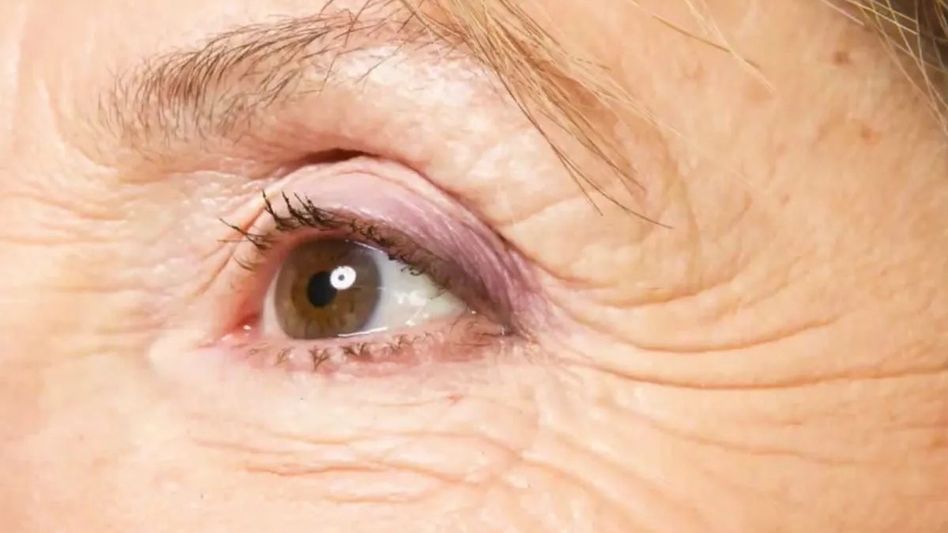The Battle Against Time: Escaping Fast-Advancing Wrinkles
Wrinkles, the telltale lines of aging, have long been a concern for those keen on maintaining youthful skin. With the fast-paced advancements in the field of dermatology and skincare, the quest to escape from the relentless march of wrinkles has never been more feasible. However, understanding the multifaceted nature of wrinkle formation and employing a comprehensive strategy is essential.

Wrinkles, the telltale lines of aging, have long been a concern for those keen on maintaining youthful skin. With the fast-paced advancements in the field of dermatology and skincare, the quest to escape from the relentless march of wrinkles has never been more feasible. However, understanding the multifaceted nature of wrinkle formation and employing a comprehensive strategy is essential.
Understanding the Science Behind Wrinkles
Wrinkles primarily occur due to the natural aging process and are influenced by both intrinsic and extrinsic factors. Intrinsic aging is determined by genetics and the natural metabolic processes that lead to a gradual decline in skin elasticity and collagen production. Extrinsic aging, on the other hand, is influenced by environmental factors such as sun exposure, pollution, lifestyle choices, and skincare habits.
Collagen and elastin are the key proteins responsible for maintaining skin's structure and elasticity. As we age, the production of these proteins diminishes, leading to the thinning of the dermal layer and the formation of wrinkles. Additionally, repeated facial expressions, gravity, and the reduction of fat in the deeper layers of the skin contribute to the development of wrinkles and fine lines.
Preventive Measures
Preventing wrinkles involves a combination of lifestyle adjustments, proper skincare routines, and the avoidance of harmful environmental factors.
Sun Protection: Ultraviolet (UV) radiation from the sun is one of the leading causes of premature skin aging. Regular use of a broad-spectrum sunscreen with at least SPF 30 can significantly reduce the risk of sun-induced wrinkles. Wearing protective clothing, hats, and sunglasses can also provide additional defense against UV rays.
Healthy Diet: A diet rich in antioxidants, vitamins, and minerals can support skin health. Foods high in vitamins C and E, such as citrus fruits, nuts, and green leafy vegetables, help combat oxidative stress and promote collagen production. Omega-3 fatty acids, found in fish and flaxseed, also contribute to skin elasticity and hydration.
Hydration: Keeping the skin well-hydrated is crucial for maintaining its elasticity. Drinking plenty of water and using moisturizers that contain hyaluronic acid, glycerin, and ceramides can help retain moisture in the skin.
Avoid Smoking and Limit Alcohol Consumption: Smoking accelerates the aging process by reducing blood flow to the skin and depleting essential nutrients. Similarly, excessive alcohol consumption can dehydrate the skin and lead to the formation of wrinkles.
Regular Exercise: Physical activity improves blood circulation, which in turn nourishes skin cells and promotes the removal of toxins. Exercise also helps reduce stress, which can contribute to premature aging.
Quality Sleep: Adequate sleep is essential for skin repair and regeneration. Aim for 7-9 hours of quality sleep per night to allow your skin to recover from daily stressors.
Skincare Routine
A consistent and well-rounded skincare routine can significantly slow down the appearance of wrinkles.
Cleansing: Use a gentle cleanser to remove impurities, makeup, and excess oil without stripping the skin of its natural moisture.
Exfoliation: Regular exfoliation helps remove dead skin cells, promoting cell turnover and revealing fresher, smoother skin. However, avoid over-exfoliating, as this can damage the skin barrier.
Serums: Incorporate serums that contain active ingredients such as retinoids, peptides, and antioxidants. Retinoids (vitamin A derivatives) are particularly effective in promoting collagen production and reducing the appearance of fine lines.
Moisturizing: Use a moisturizer suitable for your skin type to keep the skin hydrated and supple. Look for ingredients like hyaluronic acid, ceramides, and niacinamide to strengthen the skin barrier.
Sun Protection: Apply sunscreen daily, even on cloudy days or when indoors, as UV rays can penetrate windows.
Advanced Treatments
For those seeking more dramatic results, several advanced treatments can effectively reduce the appearance of wrinkles.
Topical Treatments: Prescription-strength retinoids and other anti-aging creams can significantly improve skin texture and reduce wrinkles. Consult a dermatologist for personalized recommendations.
Chemical Peels: Chemical peels involve applying a solution to the skin to remove the top layer, revealing smoother, younger-looking skin beneath. They can help reduce fine lines, sun damage, and uneven skin tone.
Microdermabrasion: This non-invasive procedure exfoliates the skin using tiny crystals, promoting cell turnover and reducing the appearance of fine lines and wrinkles.
Laser Therapy: Laser treatments, such as fractional laser resurfacing, stimulate collagen production and improve skin texture. These treatments can effectively target deeper wrinkles and sun damage.
Injectables: Botulinum toxin (Botox) and dermal fillers are popular options for reducing the appearance of wrinkles. Botox temporarily relaxes facial muscles, preventing the formation of expression lines, while fillers add volume to areas with deep wrinkles.
Microneedling: This procedure involves using fine needles to create tiny punctures in the skin, stimulating collagen production and enhancing the skin's texture and elasticity.
Radiofrequency (RF) Therapy: RF treatments use energy waves to heat the deeper layers of the skin, stimulating collagen production and tightening the skin.
Conclusion
Escaping fast-advancing wrinkles requires a multifaceted approach that combines preventive measures, a consistent skincare routine, and advanced treatments. By understanding the factors that contribute to wrinkle formation and taking proactive steps to address them, you can maintain youthful, radiant skin for years to come. While aging is an inevitable part of life, modern skincare advancements offer numerous ways to slow down the visible effects and embrace aging gracefully.
Copyright©2025 Living Media India Limited. For reprint rights: Syndications Today









